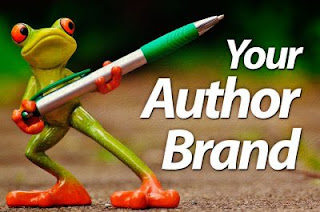When I was growing up, my grandfather used to say, “Get an education because once you have it, no one can take it away from you.” I feel the same way about authors and their personal brands. As authors, once you build and establish your personal brand, no one can take it away from you.
For some authors, the idea of a personal brand is uncomfortable. Some tell me that they don’t want to “be a brand.” Building a brand doesn’t have to be scary. Branding is simply sharing your stories and expertise while building trust — that’s all it is — and it’s so important in today’s market.
Fair warning though, branding is not something you do for a few weeks before your book comes out. Many people, including myself, did not see the benefits of investing time and energy into a branding strategy for 18 months to two years. So if you want to take more control of your writing career, then get serious about your personal branding strategy. Here are five benefits that make it worth your time:
1. Show Your Uniqueness. Investing time and effort in your personal brand is crucial to your success as an author. If you are asking, “What’s in it for me,” you should know the most important element of a personal brand is that it helps you be yourself, stand out from the crowd and carve out your niche. After all, there is no competition for you. Your brand is the essence of who you are. There’s a huge difference from an author who has worked to develop a strong personal brand versus an author who hasn’t invested any resources in developing an online presence. Consider your brand as your digital reputation, resume, platform and an extension of your business card. Your personal brand will make you more valuable to publishers and agents. Together your book and your brand are credibility builders and door openers.
2. Control the Perception. Branding is about how you are perceived in the market, and today you have control over that perception. Personal brand management is about cultivating the pieces that tell your story. You build your reputation with your willingness to share your knowledge and expertise. In today’s socially connected world, our reputations have become global, making our brand more important than ever. Social media has given us an opportunity like never before to communicate with others and shape personal brands with a myriad of online tools. You can proactively build, maintain and protect your good name in the public eye by authentically investing in your brand.
3. Build a Following. Each social media outlet offers you the opportunity to build a following by generously sharing your time. With focused effort, a plan and allotted time, you can become known as an expert in your industry. Before putting in your time though, make sure you take time to think of the goals.
4. Leverage your brand. When you invest time in building your personal brand, you can leverage it to get more online reviews, write and publish other books, secure speaking engagements and build your business. Your book and your brand can be the gateway for other entrepreneurial pursuits, books, services and revenue streams. Look at leveraging your brand as an opportunity builder.
5. Learn From Your Readers. Branding helps your readers and potential readers to understand who you are and what your value proposition is so they can make an informed buying decision. As you build a following, you will be creating your ideal audience — readers interested in what you have to say and interested in buying from you. You in turn can learn about them, about what they like and need. Online branding is building a relationship based on trust and common interests. Done correctly, you’ll get as much out of it as you put into it.
Your brand is the story of your career. It may take time and money and effort to cultivate but once you establish it no one can take it away from you. Here’s a blog on developing your digital marketing blueprint to get you started.
Culled from Huff Post


